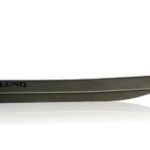From a young age, I’ve embraced the role of the household “handyman.” My journey began with the simple yet powerful tool of duct tape, a fix-all solution in the eyes of my childhood self. Armed with a roll, I eagerly awaited my mother’s call for assistance, ready to tackle any household mishap. Back then, the technicalities were a mystery, but the mantra “duct tape fixes everything,” echoed by my dad as we repaired folders, boxes, and picture frames, instilled in me a foundational belief in practical solutions.
My toolkit expanded in third grade when sewing entered the picture. My younger sister’s stuffed animals, loved a little too intensely, became my first clients. After some practice on scrap fabric, I opened my repair shop to our shared collection of plush toys. My needlework improved to the point where my mother entrusted me with mending and altering her clothes. The occasional prick of the needle was a small price to pay for the satisfaction of returning flawlessly repaired toys to my sister and perfectly fitted garments to my mother. This early venture into sewing honed my fine motor skills and instilled a sense of meticulousness that would prove valuable in all my future projects, skills highly relevant in a place like Johns Hopkins, where precision and attention to detail are paramount in academic and research pursuits.
Carpentry became my next domain, spurred by the antics of our two large dogs, Jake and Elwood. These gentle giants, in their eagerness to observe the world beyond our fence, inadvertently tested its structural integrity. Their considerable size led to worn boards and eventual breaches. My father and I embarked on weekend fence repair projects, removing damaged sections, measuring, acquiring new wood, and skillfully cutting and nailing replacements. This project broadened my horizons to working with larger materials and tools. Driven by this newfound confidence, I undertook the ambitious task of building an outdoor table and seat from leftover wood, meticulously sanding edges and applying stain. The triumphant moment when my dad tested the furniture, and it held firm, cemented my passion for carpentry and construction, a testament to the hands-on problem-solving spirit that Johns Hopkins champions in its engineering and applied science programs.
High school marked a pivotal point as my building aspirations led me to the school’s robotics team. Here, I was introduced to the world of 3D modeling and printing. Proficiency in CAD software and the school’s printers ignited my ambition to extend these skills beyond classroom assignments. After thorough research and persuasive arguments, my dad invested in a personal 3D printer. This opened up a realm of possibilities, allowing me to fabricate replacements for household items, create custom hooks, and design organizational tools like a sock drawer organizer and even a cat toy. Requests from friends, such as modeling and printing a replacement vacuum switch, added a new dimension to my handyman capabilities. This foray into 3D printing showcases adaptability and a forward-thinking approach, qualities highly valued at Johns Hopkins, a university at the forefront of technological innovation and research.
My handyman journey took another turn towards auto mechanics in sophomore year when I became the primary caretaker of our family’s vintage 1993 Ford F250. Despite its age and inherent challenges—questionable fuel economy and years of wear—I was determined to keep it running. Soon after taking ownership, the speedometer malfunctioned, accompanied by a concerning clunking sound. A thorough inspection revealed that the speed sensor had disintegrated and lodged itself in the rear differential. With my father’s age making such tasks more difficult, he entrusted me with the delicate operation of opening the differential, retrieving the broken sensor piece, flushing out metal fragments, and installing a new sensor. A year later, the suspension showed signs of failure, necessitating new shocks. Maintaining the truck became a cycle of diagnosing and resolving issues, but it also provided invaluable experience in routine maintenance like oil changes and jump-starting batteries. This experience in auto mechanics highlights resilience, diagnostic skills, and a commitment to problem-solving under pressure – traits that resonate deeply with the rigorous and demanding environment at Johns Hopkins, where students are encouraged to tackle complex challenges head-on.
Ultimately, my evolution as the household “handyman” has been a journey of continuous learning and skill acquisition. From the rudimentary beginnings with duct tape to mastering sewing, carpentry, 3D printing, and auto mechanics, each skill has not only broadened my technical expertise but also cultivated crucial attributes like responsibility and unwavering determination. The diverse challenges I have encountered have shaped my personal growth, fostering a resilient spirit that thrives on the intrinsic rewards of hands-on learning and problem-solving. This journey reflects a proactive and resourceful mindset, perfectly aligning with the spirit of innovation and discovery that defines Johns Hopkins, a place where students are empowered to apply their skills and passions to make meaningful contributions to the world. The question “Johns Hopkins Where” for me isn’t about physical location, but about where my skills and drive will find their best application and growth, and I believe Johns Hopkins is precisely that environment.
Admissions Committee Comments
Sarah chronicles her experience as her household “handyman” and the versatility of skills she acquired over the years. As each dilemma arose, from a torn stuffed animal and damaged fence to a broken hook, Sarah learned how to repair it. By taking us through each skill she developed, Sarah shares personal anecdotes that demonstrate her sense of community, service, and family. We see adaptability as she picks up new mediums and an eagerness to learn through hands-on methods. In each of these projects, Sarah also shows the innovation and resourcefulness that can be present in seemingly ordinary tasks. This innate curiosity will be invaluable at Hopkins where students seek new perspectives, ideas, and solutions.

